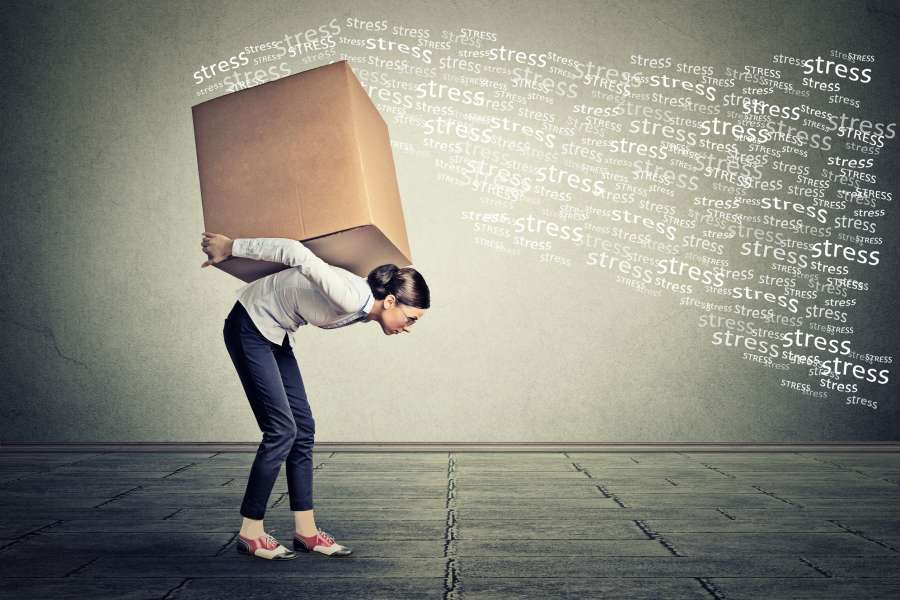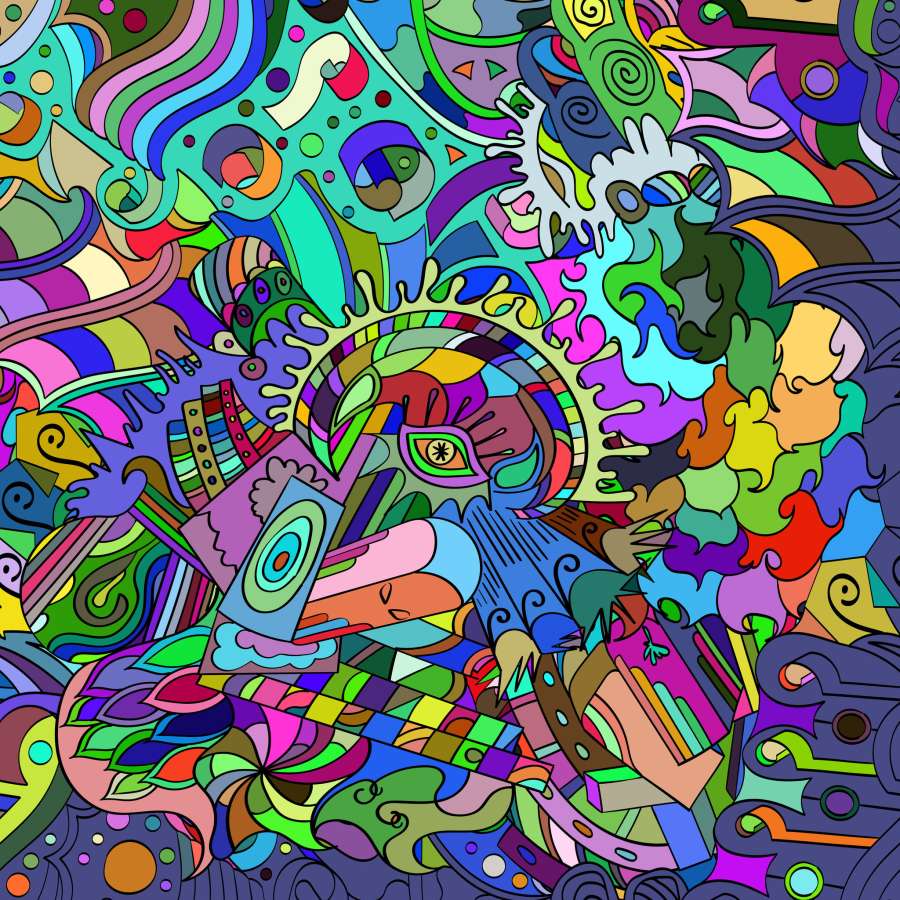How does the world deal with stress?
April 15th, 2019
Stress has been around for centuries. It’s what saved us from being eaten by woolly mammoths back before we were humans, and continues to alert us of dangerous or challenging situations to this day. But, thanks to the incredible evolution of our species, we no longer need to stress out over being eaten alive by prehistoric animals. Instead, we stress about not meeting deadlines on time or how much single-use plastic we’re using. Feeling stressed isn’t a bad thing, it is a natural reaction to a difficult situation, but studies by MentalHealth.org are showing that almost three-quarters of British people are feeling so stressed they become overwhelmed or unable to cope. This isn’t good. This amount of stress can lead to serious health implications and premature death.

As stressful as this sounds, it seems some countries are doing better at managing their stress levels than others. Each year, the United Nations Sustainable Development Solutions Network produce a World Happiness Report that ranks 156 countries across 6 factors (GDP, life expectancy, social support, generosity, freedom and corruption) to determine how statistically happy its citizens are. The United Kingdom came in 15th if you were wondering.
The top 5 happiest countries seem to stay relatively similar year by year. The Netherlands (5th), Iceland (4th), Norway (3rd) and Denmark (2nd) are all countries where their citizens get paid a high living wage and the sense of community is very strong. For the first time, the top spot this year was taken by Finland.
So, what makes Finland such a happy and stress-free place to live?

It has a lot to do with its landscape. According to the Food and Agriculture Organization of the United Nations, Finland has more forest per square mile than any country in Europe. Finland is also home to 188,000 lakes, meaning there is ample opportunity to experience the benefits of nature there.
All this nature also means they take environmental issues very seriously. Finland produces two-thirds of its electricity from renewable sources and by providing 2,400 miles of cycle lanes in Helsinki and creating an on-demand service for public transport, they want to make motor-vehicle ownership obsolete by 2025.
In short, Finland is a happy country because it has a supportive social system and institutions that make it harder for people to fall through the cracks. They are tolerant towards immigration and the gender gap is one of the smallest in the world. “Maybe we just don’t stress too much about what’s going on in the world?” says Jani Ahonen, a Finnish photographer. “Plus, we enjoy the Finnish nature and sauna.” His sister, Ninni, concurs, “I think Finland is so happy because we have fresh air, your own personal space and we are so close to nature.”

As wonderful as Finland sounds (flights are around £100 if anyone was wondering), we can’t all frolic amongst the pine trees before work. However, we can benefit from adopting stress-relieving techniques used around the world.
As Janni said, Finland and its Nordic cousins swear by the sauna to de-stress. That’s because when you are stressed, your blood vessels constrict, making you tense. Sitting in a sauna for 10 minutes a day increases your circulation, opening up your blood vessels and encourages your body and mind to relax. If a sauna is not readily available, a warm bath or hot shower will also do the trick.
If you are feeling especially adventurous, make like the Tibetans and wake up laughing. Research shows that laughing counteracts the effects of stress by increasing production of mood-boosting hormones. Forcing yourself to laugh in the morning could set you up for a relaxing and stress-free day. Don’t worry if it doesn’t feel natural, your body doesn’t know the difference between a fake laugh and a real laugh so you’ll still benefit from the experience. Or, make your partner very happy by introducing the Indian art of head massages into your day. Studies show that massaging your head relaxes contracted muscles that cause tension and headaches. Rubbing your temples, top of your scalp and base of your neck for one-minute releases stress-reducing hormones that will help to relax you.

If you’re looking for a more radical approach to reducing stress, make like the Danish and introduce Hygge into your life. Pronounced ‘Hoo-ga’, it is a concept that many in Denmark swear by. Literally translating to ‘cosiness’, Hygge is the idea that spending quality time with your friends and family, often with coffee, cake or beer, can be good for your soul. You know the feeling of sleeping in newly washed sheets? Or curling up with a movie on a rainy Sunday? That’s Hygge. Rather than being an occasional ‘treat’, Hygge is a way of life. According to Helen Russell, author of The Year of Living Danishly: Uncovering the Secrets of the World’s Happiest Country, “There isn’t so much enforced deprivation in Denmark. Instead, you’re kinder to yourself and so each other. Danes don’t binge then purge. No wonder they’re happier than we are in the UK.” So instead of reserving moments of cosiness for when you have had an especially stressful week, experience Hygge every day. Even lighting a candle while you work at your desk is enough Hygge to make you feel calmer.

Another method, brought to you by the Japanese, is KonMari. Unless you don’t use the internet, you should have heard of Marie Kondo and her ‘sparks joy’ method. The idea that if something doesn’t spark joy in you when you hold it, you should throw it away. The concept encourages a more minimal way of living, only owning things you really need and really love, rather than holding onto clutter. Clearing your living space in this way does wonders to your mental state. “Every day you see that shiny new purchase, your mind is distracted because it has to register another thing. What would your life look like if your mind had less things to process?” asks Psychology Today journalist, Linda Esposito. The way you keep your home offers a great insight into your mental state. A cluttered home most often equals a cluttered mind. According to their website, the KonMari method ‘places great importance on being mindful, introspective and optimistic’ and allows you to focus on what really matters in your life. By introducing the KonMari method into your home and decluttering, you also take a step back from the rat-race of who has what and how to have more. Paring down your home allows you to stop comparing yourself to your neighbours or colleges and alleviating another stress in your life.

Maybe we can take a lot of encouragement from the happiest countries. Maybe life doesn’t have to be one big stressful situation and there are many short and long-term techniques we can introduce that will make our lives that much happier. The overarching theme with all the top 5 happiest countries is their access to nature and their strong sense of community. Introducing less stress in your life doesn’t have to be taxing. Try calling someone you love and invite them for a stroll through the park. You just might feel the difference.


